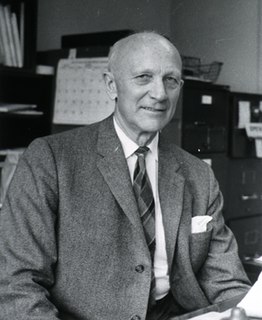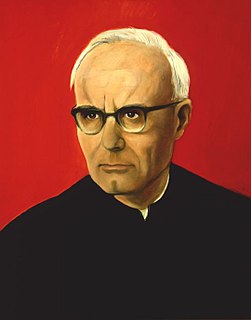A Quote by Naum Gabo
The way of a creative mind is always positive, it always asserts; it does not know the doubts which are so characteristic of the scientific mind.
Quote Topics
Related Quotes
The mind always functions in an eccentric way, the mind is always an idiot. The really intelligent person has no mind. Intelligence arises out of no-mind, idiocy out of the mind. Mind is idiotic, no-mind is wise. No-mind is wisdom, intelligence. Mind depends on knowledge, on methods, on money, on experience, on this and that. Mind always needs props, it needs supports, it cannot exist on its own. On its own, it flops.
In Japan we have the phrase, "Shoshin," which means "beginner's mind." Our "original mind" includes everything within itself. It is always rich and sufficient within itself. This does not mean a closed mind, but actually an empty mind and a ready mind. If your mind is empty, it is always ready for anything. It is open to everything. In the beginner's mind there are many possibilities; in the expert's mind there are few.
You can call it tathata, suchness. 'Suchness' is a Buddhist way of expressing that there is something in you which always remains in its intrinsic nature, never changing. It always remains in its selfsame essence, eternally so. That is your real nature. That which changes is not you, that is mind. That which does not change in you is buddha-mind. You can call it no-mind, you can call it samadhi, satori. It depends upon you; you can give it whatsoever name you want. You can call it christ-consciousness.
I conceive that the leading characteristic of the nineteenth century has been the rapid growth of the scientific spirit, the consequent application of scientific methods of investigation to all the problems with which the human mind is occupied, and the correlative rejection of traditional beliefs which have proved their incompetence to bear such investigation.
Most of all we need an education which will create an educated mind. This is a mind not simply a repository of information and skills, but a mind that is a source of creative skepticism, characterized by a willingness to challenge old assumptions and to be challenged, a spaciousness of outlook, and convictions that are deeply held, but which new facts and new experiences can always modify.
Meditation is nothing but putting the mind aside, putting the mind out of the way, and bringing a witnessing which is always there but hidden underneath the mind. This witnessing will reach to your center, and once you have become enlightened, then there is no problem. Then bring the mind in tune with you
We are human, so we do go through pain and we struggle with things, but it's all about how you respond to a situation. My whole life, I've been responding in a positive way and keeping a positive mind, keeping God first in my heart, in my mind. No matter what wrong I've done, I know who sees the heart.
Mind is a duality; it is always split. There is no single point on which the mind agrees in totality. Half of the mind will agree and half of the mind will disagree, and whatever you choose, you are choosing only the half. The remaining half is going to take revenge. The unchosen part, the left over, will wait for its chance to show you that whatever you have chosen is wrong. But it does not matter which part you choose. Choice itself is wrong.
Surely, it is only when the mind is creatively empty that it is capable of finding out whether there is an ultimate reality or not. But, the mind is never creatively empty; it is always acquiring, always gathering, living on the past or in the future, or trying to be focused in the immediate present: it is never in that state of creativeness in which a new thing can take place. As the mind is a result of time, it cannot possibly understand that which is timeless, eternal.
For it is the bitter grief of theology and its blessed task, too, always to have to seek (because it does not clearly have present to it at the time)...always providing that one has the courage to ask questions, to be dissatisfied, to think with the mind and heart one ACTUALLY has, and not with the mind and heart one is SUPPOSED TO have.
It isn't a hunch but the subconscious mind, which is the creative mind, at work. That is the mind which makes artists do things without their knowing how they came to do them. Perhaps with me it was the cumulative effect of a lot of little things individually insignificant but collectively powerful.


































